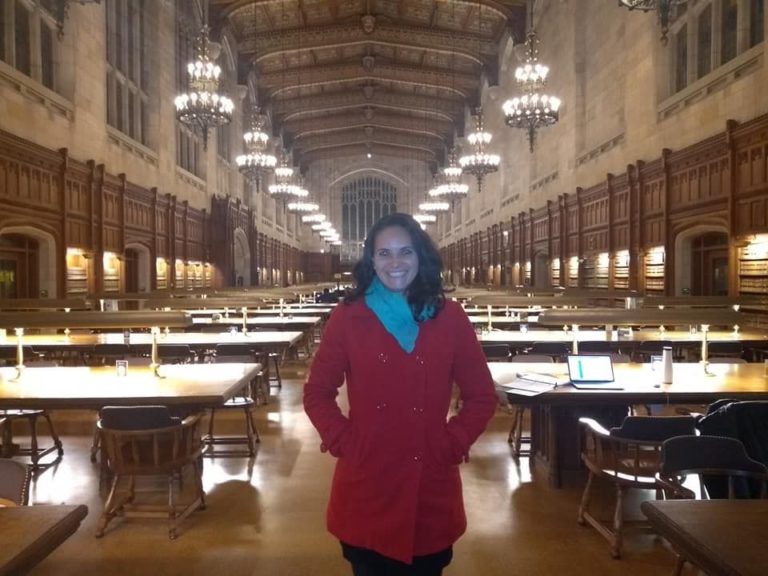Postdoctoral Fellow at Global Perspectives on Law, Policy, and Mobility Innovation Conference
In February 2020, Silvia Stuchi, PPgSUS Postdoctoral fellow, was invited to participate in the 2020 Conference – Global Perspectives on Law, Policy, and Mobility Innovation, at the University of Michigan, to present the research conducted in the Sustainability program at EACH USP, under the supervision of Sonia Paulino.
The goal of the conference was to bring together a diverse selection of international mobility experts, representatives from government, industry, and civil society to discuss how communities and nations around the world are reacting to new mobility technologies such as drones, automated vehicles, and micromobility platforms, etc. In the United States, the discussion of new mobility technologies has focused on domestic developments, with some discussion of developments in nations and regions that have deep connections to the American transportation system – (Canada, EU, Japan, South Korea among others). This conference was intended to expand that discussion to a broader set of nations and regions, to gain new perspectives on the promises and dangers of these emerging technologies.
In different contexts, participants at the event (from China, India, Brazil, Mauritius Island, Canada, and the US) pointed to very similar pressing issues.
There is no ready-made recipe, but there is not much secret either: it is necessary to prioritize active mobility connected to quality public transportation accessible to all people, combined with strong road safety measures and civil society participation. In the same way, it is urgent to reduce the use of individual motorized transport through instruments and regulations that discourage car use. There has also been a lot of talk about e-scooter regulation – and it’s a controversial issue where this ‘new mobility goes’ and ethics in the use of autonomous vehicles…
Technologies can help, but in isolation and detached from local realities they serve little or no purpose, especially when negative socio-environmental externalities of the current model are not internalized in the costs of the current system.
Especially in emerging/developing contexts, urban mobility is sustainable when it is committed to minimize and mitigate environmental impacts and, simultaneously, promote universal access to opportunities for the entire population, aiming to contribute to the well-being and quality of life of people. This combination, through integrated and interdisciplinary management, has great potential to also contribute significantly to the improvement of air quality and mitigation of greenhouse gases.
Below, the list of participating experts:
Silvia Stuchi Cruz – Founder, CorridaAmiga / University of Sao Paulo (Brazil)
Dr. Rohit Baluja – Chairman, Institute of Road Traffic Education (India)
He Shanshan – Partner, Anli Partners (China)
Luiz Otávio Maciel – Traffic Department of State of Pará (Brazil)
Pramanand Gopaldu – Lead Engineer, Traffic Management and Road Safety Unit (Mauritius)
Phil Monture – (Six Nations of the Grand River)
Raymond Hess – Transportation Manager, City of Ann Arbor (US)
Ellen Partridge – Policy and Strategy Director at Shared-Use Mobility Center (US)
Daniel Arking – Counsel, Department of Law, City of Detroit (US)
Jeff P. Michael, EdD – Distinguished Scholar and Leon S. Robertson Faculty Development Chair in Injury Prevention, Health Policy and Management, Johns Hopkins University (US)
Emily Frascaroli – Managing Counsel, Product Litigation Group, Ford Motor Company (US)
Jessica Robinson – President and Executive Director, Michigan Mobility Institute (US)




 Imprimir
Imprimir